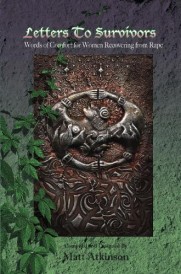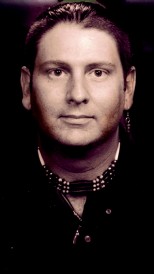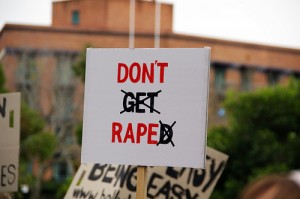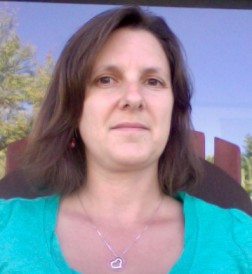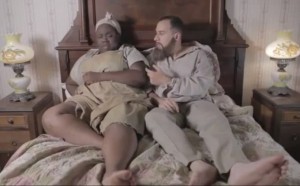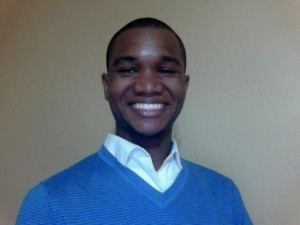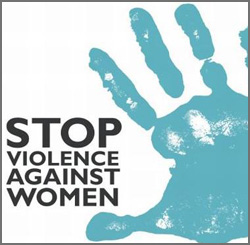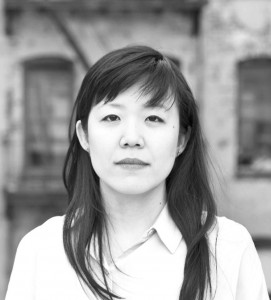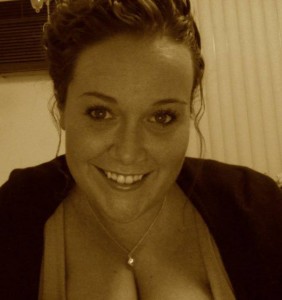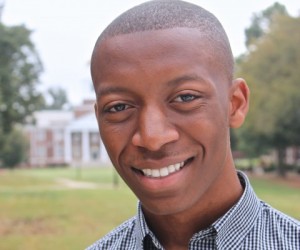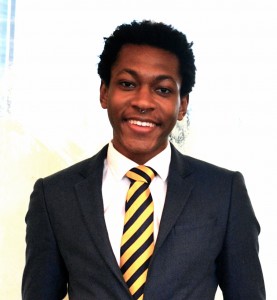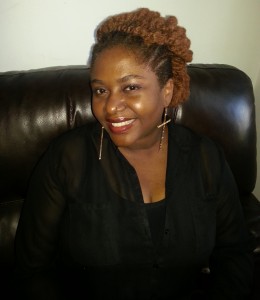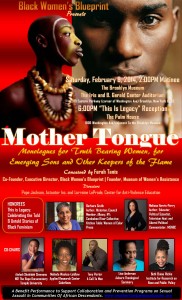By Aishah Shahidah Simmons and Darnell L. Moore
![Stephanie Gilmore @ SlutWalk Philadelphia Photo credit: Aishah Shahidah Simmons]()
Stephanie Gilmore @ SlutWalk Philadelphia Photo credit: Aishah Shahidah Simmons
Stephanie Gilmore is an antiracist queer feminist scholar-activist who engages activism through education and writing. She facilitates workshops on contemporary and historical feminist activism, sexual violence, and coalition building. She is the author of numerous scholarly and popular articles as well as two books (Feminist Coalitions: Historical Perspectives on Second-Wave Feminism in the United States, 2008; Groundswell: Grassroots Feminist Activism in Post War America, 2012). She is a member of the editorial collective for the journal Feminist Studies; and a board member for the Committee of LGBT Historians. She welcomes the opportunity to engage with and listen to people, and you can connect with her via Linked In.
TFW: You identify as a feminist antiracist queer scholar-activist. We all have endured journeys that have shaped our politics. Can you say a bit about your own journey and how it shaped your political framework? And how do you embody your political commitments in your day-to-day life?
Stephanie: I grew up in the 1970s and 1980s, in the aftermath of much social and cultural change that liberationists made in the decades before. But I grew up in Alabama, where much of that feminist, antiracist, queer change was resisted, even rejected. So my first foray into political activism was challenging that resistance in my daily life and asking questions as to “why” people did not have the same opportunities. When I was 14, my high school administration debated whether or not a pregnant classmate could stay in school. This was 1984! I remember telling my mother that she should be allowed to stay, that pregnancy was not a crime or a problem. I also announced that I was pro-abortion and believe now, as I did then, that any person should have access to a safe, legal, and affordable abortion at any time. Talk about a stand that put me at odds with people – then and now! I started talking to people about birth control, safer sex, and abortion, and once I was sent to my high school principal’s office for asking my brother and sister students about the kind of birth control they used and if they were satisfied with it. It is funny to recall the spitfire of this high school girl who was unafraid to speak, to make political the personal long before I’d heard of the women’s liberation movement that introduced that concept. In my own personal journey, I realized that my voice, however small, mattered.
Speaking up for myself and speaking up for and with others was imperative if I were to survive in this world. When I learned that members of my extended family had been involved in anti-civil rights demonstrations, including bus bombings, I was horrified, but alas not surprised. I’d grown up in Alabama, among people who really did believe that Black people and white people were different and needed to be segregated. But it never dawned on me to feel “guilty” – “guilt” is often self-serving. What I did was become engaged in antiracist work, learning about people like Anne Braden and following a path toward racial justice. Just as I had done with the classmate — who was able to finish her year as a student at school — I listened. But I also spoke out when I heard people engaging in racist talk or perpetuating racist stereotypes – I may not have been the most popular kid at social gatherings but I knew that it mattered to me and to others. Again, I did not have the words I possess now, but I knew that I had white-skin privilege and challenged myself and others to be aware of how it operates. That meant, and means, being openly aware that, as a white person, unlearning and undoing racism is my work.
When I was first sexually assaulted and then raped, I silenced myself. I wasn’t supposed to tell anyone about the man who was molesting me, and I kept that secret for years. One day, at school, I broke down and went to the counselor’s office. That evening, when my mother came home from work, I told her about the repeated molestation, and had no idea how she would respond. We cried and she held me, and she told me the words that resonate with me today: “I believe you.” I realized then – and see nearly every day now – how few people believe women and men who say they have been or are being assaulted or raped. And I make it my explicit mission to let anyone know that if they tell me that they or someone they know has hurt, abused, or violated them, my first words are “I believe you.”
Believing people, and believing in people, is at the heart of my political commitment. Demonstrating that belief can be difficult, to be sure. But I am firmly committed to politicizing people’s lives and experiences and sharing this kind of political analysis through education and activism. What does this mean? I refuse to talk about sexual violence, for example, in a personal, individual way, as if this is something that happens to “me.” To be sure, it does, and I face different forms of sexual violence and sexual micro-aggressions all of the time. But it happens to us — and it is justified in part because “we” are asking for it. We’re loud, bitchy, women; we’re queer; we’re femme or we’re butch; we’re undocumented; we’re college students; we’re drunk or doing something or wearing something or being somewhere or … we all know the tropes. I work to flip the script by speaking against and exposing the forces that diminish and silence our voices. Sexual assault, racism, anti-queer bullying – all need to be addressed through the lens that the personal is political. What happens to you or me happens to us, and we have the power to confront it, to demand change and justice. The first step for me is listening and believing. It is my way to create what I and a student of mine started calling “micro-benevolences.”
TFW: You were a staunch supporter of the SlutWalk movement and were one of the featured speakers at SlutWalk Philadelphia in 2011. And yet, in spite of your support–or perhaps we should say because of your support–you were led to write a very powerful Facebook post titled “Am I Troy Davis? Am I Slut?,” which challenged institutional and individual racism and classism within various progressive movements for radical social change. Shortly after your posting it on Facebook, the Ms. blog and Racialicious reprinted it on their sites. What does it mean for you, as a white anti-racist scholar activist, to do the work of dismantling white supremacy-even in feminist spaces? What is your advice for others who want to do the same but are afraid of the repercussions?
Stephanie: Feminism, like any social movement, has many historical and contemporary iterations; and there are many strands and sites of feminist analysis and activism. I embrace Sister bell hooks’ definition of feminism as “the struggle to end sexist oppression” (hooks, Feminist Theory: From Margin to Center, 28). To understand sexist oppression, we must understand how racism, cisgenderism, heterosexism, and classism shape sexism; to end sexism, we have to confront all forms of oppression. Of course, this is the hard work – many forces conspire to keep us divided from one another, perpetuating a sort of “oppression Olympics” wherein various –isms are pitted against each other. When we buy into that perspective, we work at odds with one another. To combat these forces, we need our many voices and to see how our individual battles ARE our collective struggle.
And, as hooks reminds us, the feminist movement must be a space for criticism, struggle, and transformation. When SlutWalk emerged in 2011, I felt the surge of people power, a surge I hadn’t experienced in a good long while. People were mobilizing across the internet AND in person to confront the perpetuation of sexual violence and the dominance of rape culture. And what a moment it was! Around the world, women and men were organizing under the banner of SlutWalk and in solidarity with the women in Toronto who were told – by a constable, no less — that if they wanted to avoid rape, they needed to stop dressing like sluts. But what was even more exciting and empowering to me is how people used SlutWalk to address local manifestations of gender and sexual violence. In Cuernavaca, Marcha de las Putas organizers protested the alarming rates of femicide in the state of Morelos; in Philadelphia, SlutWalk took local significance because Dan Rottenberg opined that “liberated women” needed to be mindful of how they dress because men will interpret sexual confidence as wanting “to get laid.” From New Dehli to San Francisco, organizers had too many local reasons to mobilize, and SlutWalk started to bring them to the fore.
Now, what’s in a name? Embracing the name “slut” was not going to happen for a lot of women and men, and there are many wonderful responses to the name. What I did find encouraging, however, was the public conversation around the problematic (for some) name – and many people who did or do not claim the label “slut” still participated and supported the cause. This kind of engagement signals vitality in a movement. When I spoke at SlutWalk in Philadelphia, I did not embrace the label “slut” – it is a word I never claimed, so RE-claiming it was not an option. But I also rejected the word in solidarity with many women who had been labeled “sluts” simply because they are Black or Brown, because they are lesbians, queer, or genderqueer, because they are poor. It was imperative for me as a white, cisgender, lesbian feminist to speak out about it.
Indeed, it is important to me to challenge racism and classism in feminism. Radical social change is impossible if we don’t address racism and classism. We have to be mindful that we can have solidarity with people without having to be them. I will never know what it is like to be CeCe McDonald, who survived a violent, racist, transphobic attack on her person only to be charged with second-degree murder. I cannot possibly know what life is like for Shirley Chambers, a mother in Chicago who lost her four children to gun violence, or Sybrina Fulton, the mother of Trayvon Martin (who would have turned 18 years old just a few weeks ago, had George Zimmerman not shot and killed him). I am not Troy Anthony Davis, who spent over 19 years on death row until he was executed by the state of Georgia in September 2011. To suggest that I am or can identify with any of these people diminishes the realities of their lives as they are shaped by violent hatred of trans* people, people of color, poor people, and people in prison (not mutually exclusive category). But I will speak in solidarity with those who seek to address, challenge, and dismantle the political and social structures that reinforce such hatred.
Are there repercussions? Sure. I face social ostracization. Peers have harangued me. I’ve been harassed and threatened with physical and sexual violence. I’ve received hate mail. I’ve been called any number of names. And I’m not diminishing the real emotional and psychological impact of it. But I come back to the politicization of personal experiences – and I am NOT alone! I am conscious and aware that when I speak out, I do so as a white, cisgender person who appears to be (and is) middle-class; I have a Ph.D. and publish academic articles and books. I carry social weight and a lot of folks listen to people who look like me – I know this and use this position of privilege when I speak. I am not CeCe McDonald, Shirley Chambers, Sybrina Fulton, Troy Anthony Davis … but I will speak out against the injustices they have endured, and I will believe them as they speak their truths.
TFW: It seems that it is important for you to support young people as they challenge institutional status quo. What motivates you to do this work despite potential risks?
Stephanie: My work in the academy is a deep part of my activism – it is that way for many of us in disciplines that emerged in the throes of social movement activism in the 1960s and 1970s. Rather than shy away from or dismiss the activism that created the space for women’s studies, Black studies, Latino/a studies, queer studies, and more, I embrace it. The pursuit of knowledge cannot possibly be contained to the walls of the classroom! And just as students learn more outside of the classroom, I do more teaching outside of the classroom. I will meet with students where they are and do the work of radical feminism – getting to the root of sexist oppression, a la hooks, and engaging in the struggle to end it. I also want people to think about and understand their experiences not just individually but also collectively. To come back to the issue of sexual violence, it is important for young people to know that sexual violence is a part of the culture in which they live. And it is imperative for them to recognize that sexual violence is a political act – rape is a violent act of sexual aggression against women, queer people, Indigenous people, people of color, poor people. And this is hardly an isolated experience – but it is often treated as if it is. Our society and its institutions silence victims. Even more, we refuse to acknowledge sexual violence as a form of terrorism that has been and IS used to subjugate, humiliate, and dominate whole groups of people – our comrade Andrea Smith makes this case in her power-full book Conquest (a book I recommend to every young person I encounter in my work) but many others have come to the same awareness and analysis. Students do not have to be in my classroom to come to this reality, nor do they have to be there to know that they have rights to challenge status quo. But it is part of my work as a feminist activist, scholar, teacher, student, and human being to draw out the connections between the personal and the political, to show how status quo and power operate and to contemplate ways that we can create a different world, one free of racism, sexism, classism, and heterosexism. To me, the greater risk is silence and complicity.
TFW: You’re the author of Groundswell: Grassroots Feminist Activism in Post War America (Routlegde, 2012) and the editor of the anthology Feminist Coalitions: Historical Perspectives on Second-Wave Feminism in the United States (University of Illinois, 2008). Both of these volumes shed light on the her/histories of feminist activists and movements that were not included in the mainstream feminist discourse of the 1960s and 1970s. How did these topics become the focus of your research and published writing? What do you hope readers will gain from both of these books?
My goal as a historian is to uncover hidden histories of what civil rights historian John Dittmer called “local people.” I don’t write about activist stars, but instead about the people making change in their communities because they saw a need and embraced feminism as a strategy and a goal. As a feminist scholar, I know all too well how many women’s voices are not entered into the historical record. So part of my scholarly agenda is to locate people and bring their activism into the larger conversation about our feminist movements. I am grateful that we do have repositories that actively collect women’s and feminists’ histories – the Sophia Smith Collection at Smith College, the Schlesinger Library at Radcliffe, and the Sallie Bingham Center at Duke University. But many of the people I write about do not think their activism is significant. Well, I do! In a world that is simultaneously connected via the internet and fractured into isolated communities, we need local stories that connect us to one another. And we need history so that we do not reinvent the wheel – we are fighting many of the same battles, so perhaps we can utilize time-tested strategies, even as we also use new ones as well.
My first book, Feminist Coalitions, features scholarship that engages with this goal, while also turning our attention to the many facets of feminist activism in the 1970s. So many times, we hear that ‘70s feminism was so divided by race, class, religion, location, and the like. While that is not completely wrong, it certainly is not completely right! When we talk about ‘70s feminism in such a narrow way, we miss the many and vibrant strands of feminist thought and action that emerged, and we elide the numerous issues around which feminists fought in solidarity. This isn’t to say that coalition building is easy – “coalition building is hard work,” as Bernice Johnson Reagon reminds us – but they did and do happen. And historically, they show us how people work across very real divides, sometimes with great success. Look at Our Bodies, Ourselves, which started out of a small Boston feminist group in the early 1970s to create a mimeographed and stapled guide for women to take control of their own health and health care. Today, it is a multifaceted book that encompasses so many issues and offers so many strategies for women to care for themselves at all stages of life, with an understanding that there is no singular “woman.” The Feminist Wire’s editorial board is a fine example of feminist coalition building – the group is so diverse and people bring many perspectives and histories. It may be different in that it uses the web to reach people in real time – something just not possible in the 1970s – but its intention to speak with and about the fundamental diversity of feminisms (plural!) has deep historical roots. Some of the complicated histories of feminist coalitions are told in Feminist Coalitions, and I think they can help give us a usable and un-romanticized past on which to build our current and future activisms.
Groundswell embraces a similar overall goal, turning attention to the larger history of feminist activism in the 1970s, but looking at different locations across the United States. A history of feminist activism on the East Coast – while important – has been allowed to stand for feminism everywhere. And we know that no single feminism can possibly represent the whole of our movements! So in Groundswell, I look not at a feminist “wave” but at feminist “groundswells” in Memphis, Columbus, and San Francisco – how did feminists mobilize for change in these cities? How did they define success and what successes did they achieve? What remains undone, and why? They did not surf a feminist wave; they shook the ground beneath their feet! To me, that is the heart of the movement – the rank-and-file activists who did the activist work in their communities, simply because it needed to be done. I hope that with Groundswell, readers will find a usable past, another way to see activism around the many issues that we still face today. And it should give us pause – even as it calls us to action – to know that we still fight the same fights with respect to reproductive justice, poverty, militarization, and rights for basic recognition, racism, and more.
TFW: What projects are you currently working on?
Stephanie: I am currently at work on what I hope will be my next book, a cultural history of the day of the 1968 Miss America Pageant protest. This event launched “women’s liberation” into the public consciousness; it also left us with the legacy that feminists are “bra burners” – a MYTH-conception if ever there was one because it never happened! I’m just starting this project, but already I am able to see that this one protest was grounded in deep feminist thought and a commitment to action. Organizers knew that they were addressing sexism in the form of a beauty pageant that reified conventional white beauty, but they were also organizing and protesting against racism, the war in Viet Nam, corporatist culture and capitalism, and they saw these issues as intimately related to one another. They also embraced liberation as the goal of their movement, and saw themselves as connected to the larger struggle for liberation. This day also saw the first Miss Black America Pageant, which was itself a protest against Miss America. So one single day turns out to be tremendously significant for our feminist histories. If anyone wants to talk further about this project, I hope they’ll contact me!
TFW: How do you take care of yourself in the midst of your radical scholarship and activism?
Stephanie: Ah, self care!! I love so much that you ask this question – it reminds me and anyone who reads this that activists must take care of themselves! It is a most radical act, as Audre Lorde and so many of our sister-mother-activists have reminded us. I spend a great deal of time listening to and sharing with others, in the classroom but especially beyond it. I get a tremendous amount of pleasure and strength from these interactions. Indeed, I remain inspired by the legacy of sister Ella Baker, who knew that working with young people, teaching them but also learning from them, was the greatest inspiration.
But there are times that I simply must stop, remembering that I must care for myself if I’m to keep doing this work. To do that, I cook – there is something very rewarding about making something nourishing for myself and my friends. I also write – after a most inspiring workshop with Cherrie Moraga last summer, I started writing every single day. I even started writing poetry and have found a creative outlet that helps me make sense of some of the things in my head. I also “date” myself – I take myself out to lunch or dinner, and on this date, I ask myself what I want and figure out ways to give that to myself. It sounds silly, perhaps, but I’ve spent a great deal of time trying to figure out how to give others what they need. Now I approach myself with the same amount of care and attention. But the most important thing I do for myself is meditate. Making time every day to sit seems hard, but when I feel like I don’t have the time is precisely when I must make the time. Sometimes I think I must be the worst meditator ever! But I approach it with intention, as I do all of my work. It took a very long time, but I started putting self-care on my list of things to do.
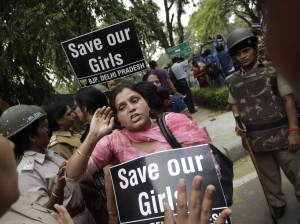 Do you know that girls and women are now living everyday in a war zone, and that gendered crimes of war are being committed in times of “peace”? Do you know that each day, a female body/person is abducted, confined, raped, raped again, demolished bodily from inside out, and left to die on roadsides of every town and every city in your “new” India? Do you hear them? Is their anguish conveyed? Are you terrorized by their terror? Do you wake from nightmares conveyed by terrorized bodies? What do you do when you wake in night-sweats? Do you cry? Do you drag yourself to the bathroom and empty the contents of your stomach? Do you stand under the shower for hours hoping that the stench of your nightmares may be washed away? Do you lie in your bed thinking about your own life even as sleep escapes you?
Do you know that girls and women are now living everyday in a war zone, and that gendered crimes of war are being committed in times of “peace”? Do you know that each day, a female body/person is abducted, confined, raped, raped again, demolished bodily from inside out, and left to die on roadsides of every town and every city in your “new” India? Do you hear them? Is their anguish conveyed? Are you terrorized by their terror? Do you wake from nightmares conveyed by terrorized bodies? What do you do when you wake in night-sweats? Do you cry? Do you drag yourself to the bathroom and empty the contents of your stomach? Do you stand under the shower for hours hoping that the stench of your nightmares may be washed away? Do you lie in your bed thinking about your own life even as sleep escapes you?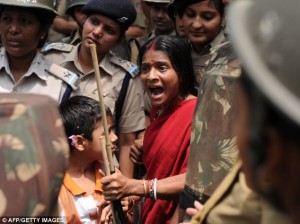 Mr. Prime Minister, do you have answers to any of these questions? You are the elected authority of the largest democracy in the world, yet you find yourself merely “disturbed” by the rape and torture of a five-year-old female child. I and many other women in India and around the world want to know: Whose heads are you rolling to stop this madness? Why are you hiding behind a broken, ineffective, biased democratic process of redressal in times of war—of male bodies against female bodies?
Mr. Prime Minister, do you have answers to any of these questions? You are the elected authority of the largest democracy in the world, yet you find yourself merely “disturbed” by the rape and torture of a five-year-old female child. I and many other women in India and around the world want to know: Whose heads are you rolling to stop this madness? Why are you hiding behind a broken, ineffective, biased democratic process of redressal in times of war—of male bodies against female bodies?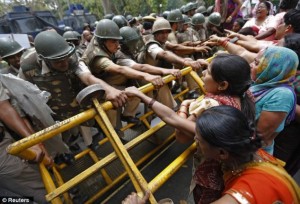
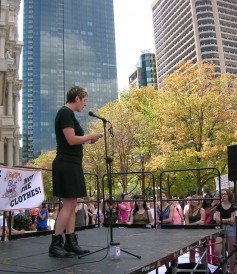


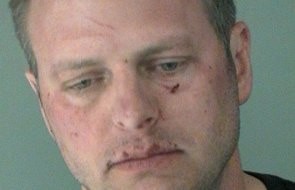
 For over 20 years, Bill Patrick has been working to support feminist community-based organizations that try to help to reduce sexual and domestic violence. As a male ally, he has partnered with shelters for battered women, women’s self defense programs, and rape crisis lines. His Ph.D. dissertation explored how men’s limited emotional repertoire is implicated in their abusive behavior in relationships. His paid career has been spent moving back and forth between counseling and teaching roles. He has worked with male survivors of childhood sexual abuse, researched and analyzed batterer intervention programs, run a supervised visitation center aimed at serving the needs of battered women who had orders of protection, and has taught several university level courses on men and masculinity.
For over 20 years, Bill Patrick has been working to support feminist community-based organizations that try to help to reduce sexual and domestic violence. As a male ally, he has partnered with shelters for battered women, women’s self defense programs, and rape crisis lines. His Ph.D. dissertation explored how men’s limited emotional repertoire is implicated in their abusive behavior in relationships. His paid career has been spent moving back and forth between counseling and teaching roles. He has worked with male survivors of childhood sexual abuse, researched and analyzed batterer intervention programs, run a supervised visitation center aimed at serving the needs of battered women who had orders of protection, and has taught several university level courses on men and masculinity. Molly Baker is studying journalism, media arts, and Spanish at the University of Arizona. Her interest in journalism began through participation in Amnesty International, reading international news stories. Her first journalistic experience was as the editor of her high school yearbook, where she gained skills in photography, general design, and feature writing. Through classes at the University of Arizona, she has discovered a passion for multimedia journalism. She enjoys interviewing people and documenting their stories. Learn more about Molly
Molly Baker is studying journalism, media arts, and Spanish at the University of Arizona. Her interest in journalism began through participation in Amnesty International, reading international news stories. Her first journalistic experience was as the editor of her high school yearbook, where she gained skills in photography, general design, and feature writing. Through classes at the University of Arizona, she has discovered a passion for multimedia journalism. She enjoys interviewing people and documenting their stories. Learn more about Molly 

